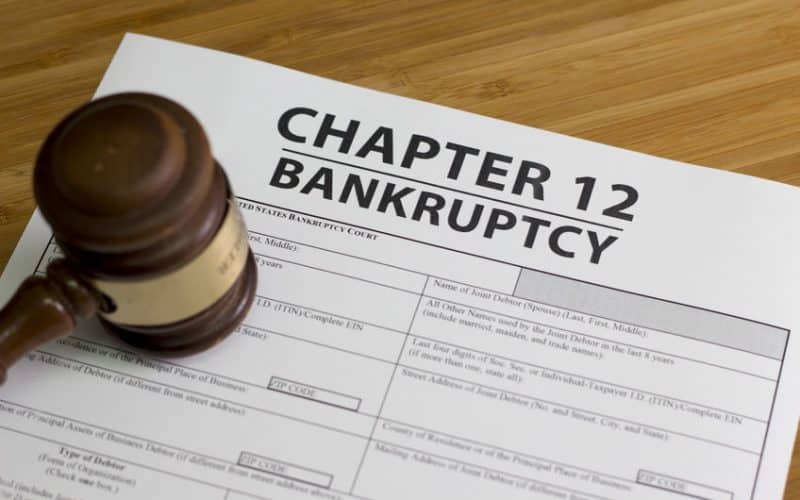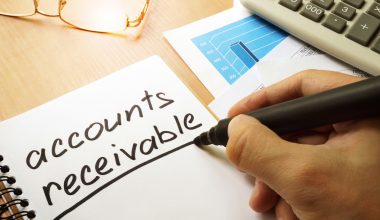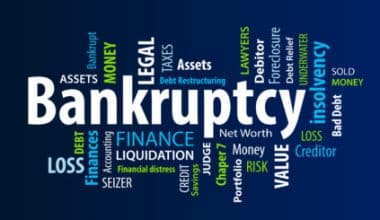Family farmers and fishermen in financial distress can use Chapter 12 bankruptcy to repay their debts. If approved, it prevents creditors and collectors from taking legal action against the debtor while they repay their debts.
Since farming and fishing activities are seasonal, the Chapter 12 bankruptcy plan provides more flexible payment arrangements than a typical Chapter 13 agreement. Find out more about Chapter 12 bankruptcy, who qualifies, and how it works. Also, know if you’ll need an attorney for your Chapter 12 bankruptcy case.
For much of our country’s history, there were few bankruptcy laws designed specifically to protect family farmers and fishermen. In response to the tightening of agricultural credit and the burden it put on family farmers and fishermen, Congress enacted Chapter 12 bankruptcy in 1986. For many years, the provisions of Chapter 12 were only temporary, and they did not become permanent until 2005.
What Is Chapter Bankruptcy?
Chapter 12 bankruptcy is for regular annual income earners. These may be family farmers or family fishermen. This chapter allows financially challenged families in society to develop and carry out a plan that can last between 3-5 years or more.
Chapter 12 Bankruptcy Eligibility
Despite its essential meaning, they don’t usually make use of Chapter 12 bankruptcy. Few debtors are eligible to file for Chapter 12 bankruptcy. In 2011, only 637 of the 1.4 million bankruptcies filed in the United States were Chapter 12 cases.
Only a family farmer or fisherman with “regular annual income” may file for Chapter 12 bankruptcy protection. “Regular annual income” can be seasonal if it is stable and consistent enough to allow the debtor to make payments under a Chapter 12 plan.
Individuals (married or single), corporations, or partnerships maybe Chapter 12 debtors. Individual Chapter 12 debtors must comply with the following requirements:
- be taking part in agriculture or commercial fishing
- have total debts of no more than $4,153,150 for farmers and $1,924,550 for fishermen (as of April 2016)
- owe 50% of their total debts to farming operations. Or, 80% of their total debts to commercial fishing operations (excluding home mortgages in both cases), and
- Farming or commercial fishing activities account for more than half of their gross profits.
Farms and fishing operations operated by family associations and companies face similar constraints. Farm partnerships and corporations cannot file for Chapter 12 bankruptcy. They can file only if a single-family holds more than 50% of their shares or equity interests.
How Does Chapter 12 Farm Bankruptcy Work?
The debtor initiates a Chapter 12 case by filing a voluntary petition for relief. Since declaring bankruptcy, the majority of Chapter 12 debtors continue to farm or fish. A trustee is named, but his or her responsibilities are usually limited to reviewing records, overseeing the debtor’s activities, informing the court, and receiving and disbursing plan payments.
Debtors in Chapter 12 must present a repayment plan within 90 days of filing bankruptcy. In some cases, the bankruptcy court could extend the planned deadline.
Creditors and the Trustee
The court, as in other bankruptcy proceedings, would appoint a trustee to deal with the debtor and creditors. A Chapter 12 trustee will convene a meeting of creditors at the outset. The trustee and creditors can query you about your petition and financial affairs during the meeting. They’ll use this data to create your payment schedule.
The Repayment Plan under Chapter 12
Chapter 12’s planning process is close to Chapter 13’s. In Chapter 12, debtors offer a three- to a five-year repayment plan to creditors. If the debtor can pay all sums due earlier, the minimum plan duration under Chapter 12 is three years. With court approval, the proposal duration may have an extension of five years. If the debtor owes domestic support commitments (child support or alimony) that he or she does not pay in full earlier, the plan term must be five years.
Approval of the Chapter 12 Plan
Chapter 12 applications must be approved by the bankruptcy court, also known as “confirmation”. The confirmation hearing must take place within 45 days of the plan’s filing date. The Chapter 12 trustee reviews the proposed plan and other documents submitted by the debtor prior to the confirmation hearing. The trustee also issues recommendations to the bankruptcy court. While it is up to the bankruptcy court to decide whether to confirm a proposed Chapter 12 proposal, most judges depend heavily on the trustee’s recommendations.
Aspects of a Chapter 12 Strategy
The following are the fundamental components of a Chapter 12 repayment plan:
#1. Required plan payments
The debtor must sign over all of his or her “disposable income” to the Chapter 12 trustee during the plan era. In a Chapter 12 situation, “disposable income” is the difference between the revenue obtained by the debtor’s farming or fishing activities and the amount reasonably required to cover:
- company costs, and
- Expenses incurred in the debtor’s family’s upkeep and help
The trustee keeps a portion of the plan payments and distributes the remainder to creditors.
#2. Mortgages and other forms of insured claims
One of Chapter 12’s benefits is that it helps debtors to “cram down” secured debt. The secured debts may include farm mortgages and boat loans. Mortgage lenders and other secured creditors must be charged at least the sum promised as collateral for the loan. Any balance owed in excess of the value of the collateral can be classified as unsecured debt. Also, it is often charged little to nothing in Chapter 12 situations. Secured debt payments can be spread out even past the plan’s duration. They can also lower the interest to a prevailing market rate.
#3. Debt forgiveness
Chapter 12 proposals must meet the “best interests of creditors” test. Creditors must be charged at least as much under a Chapter 12 agreement as they would under a Chapter 7 bankruptcy liquidation, according to the “best interests” test. Unsecured creditors will be charged pennies on the dollar or even none at all if the “best interests” test is met.
#4. End of the case
The case stays open after the confirmation hearing until the debtor makes all necessary payments to the Chapter 12 trustee. After the debtor has made all necessary payments, the court grants the debtor a discharge and they’ll close the case. With a few exceptions, a discharge discharges a debtor’s liability for obligations not covered by its Chapter 12 plan. The majority of liabilities are dischargeable. Some obligations, such as child support and alimony, are, however, nondischargeable even under Chapter 12.
If the debtor is unable to obtain plan confirmation or make required payments, his or her Chapter 12 case may be dismissed. A debtor may also choose to dismiss or convert a Chapter 12 case to a Chapter 7 liquidation.
Chapter 12 Hardship Discharge
Even if a chapter 12 debtor has failed to complete plan payments, the court can grant a “hardship discharge”. United States Code 1228 (b). A hardship discharge is generally applicable only to a debtor whose inability to complete plan payments is the result of circumstances beyond the debtor’s control and by no fault of the debtor. Creditors must have paid at least the same amount as they would have in a chapter 7 liquidation situation. Also, the debtor must be unable to change the plan. Injury or illness, for example, that precludes employment sufficient to fund even a modified plan can be grounds for a hardship discharge. The hardship discharge would not extend to any nondischargeable debts in a chapter 7 situation.
Do you need an Attorney to file for Chapter 12 Bankruptcy?
While the law does not require you to be represented by a bankruptcy attorney when filing for Chapter 12, it is nevertheless in your best interest to get experienced legal representation on your side.
Chapter 12 is a sophisticated, complex area of law. Because it is available exclusively to families within the farming and fishing industries. This makes it harder to find up-to-date information you can rely on. For that matter, even many attorneys do not have experience working directly with Chapter 12 bankruptcy cases.
Bankruptcy law changes all the time, and it’s easy to make mistakes. Those errors can prove costly. A well-seasoned attorney can help you act prudently and strategically, meeting deadlines and complying with every aspect of the law. This helps to protect your and your family’s finances for the future.
Important Takeaways
- Family farmers and fishermen in financial distress will file for Chapter 12 bankruptcy and have their debts discharged over a three to five-year period.
- Due to the seasonal nature of these companies, it incorporates elements of Chapter 11 and Chapter 13 bankruptcy while allowing for a more flexible payment schedule.
- Debtors are not required to liquidate properties under Chapter 12 as long as they adhere to the payment schedule.
- Creditors and collectors can not take action against Chapter 12 debtors without the court’s approval.
What is the process of filing for Chapter 12 bankruptcy?
The process of filing for Chapter 12 bankruptcy includes preparing and filing a bankruptcy petition and related documents, attending a meeting of creditors, and participating in a repayment plan confirmed by the court.
Can I keep my property in Chapter 12 bankruptcy?
In most cases, individuals who file for Chapter 12 bankruptcy are able to keep their property, including their farm or fishing operation, as long as they continue to make payments under the confirmed repayment plan.
How long does Chapter 12 bankruptcy take?
Chapter 12 bankruptcy typically takes three to five years, during which time the individual must make regular payments to their creditors under the terms of the confirmed repayment plan.
Does Chapter 12 bankruptcy discharge all debts?
Chapter 12 bankruptcy does not discharge all debts, but it does provide a mechanism for the individual to reorganize their finances and pay off their debts over time.
How does Chapter 12 bankruptcy affect my credit score?
Filing for Chapter 12 bankruptcy will have a negative impact on your credit score, but it can also provide an opportunity to get a fresh start and begin rebuilding your credit.
Remarks
In North Carolina and Alabama, bankruptcy managers execute duties identical to those performed by US trustees in the remaining forty-eight states. The Administrative Office of the United States Courts oversees the bankruptcy administrator program, while the Department of Justice oversees the U.S. trustee program. References to U.S. trustees are also available to bankruptcy administrators for the purposes of this publication.
Section 507 specifies ten types of unsecured claims to which Congress has granted priority distribution for public policy purposes over other unsecured claims.
A fee of $60 is levied for transferring a chapter 12 case to a chapter 13 case.
Chapter 12 Bankruptcy FAQs
What is the difference between Chapter 11 and Chapter 12 bankruptcy?
However, Chapter 11 is the only reorganization chapter available to them, since Chapter 13 is only available to individual debtors and Chapter 12 is only available to family farmers and fishermen, and both of these chapters have debt restrictions that would eliminate many businesses from eligibility.
What is the difference between Chapter 7 and Chapter 12?
In chapter 7 asset cases, the debtor’s estate is liquidated under the rules of the bankruptcy code. … Under chapter 12, debtors propose a repayment plan to make installments to creditors over three to five years
What is the meaning of Chapter 12?
Chapter 12 is a category of bankruptcy in the United States that applies specifically to farms and fisheries. It allows proprietors of farms and fisheries to reorganize their finances and debts while still maintaining ownership of their assets.
What are the requirements for Chapter 12 bankruptcy?
To qualify for Chapter 12 bankruptcy, individual petitioners must satisfy a four-part eligibility test: (1) they are engaged in a farming operation; (2) their debts do not exceed $10 million; (3) no less than fifty percent of their debts arise from framing; (4) and more than fifty percent of their income comes from
Conclusion
As much as it is advisable to stay stay of debt and everything that can negatively affect your credit score, you can file for chapter 12 bankruptcy if it is the only option you have left. Especially when you don’t want to lose your home or business. This is because it has been designed to help debtors.






